Beyond Good and Evil's remaster is the easiest way to play the game in 2024, just a shame it's also the ugliest
Less is more.
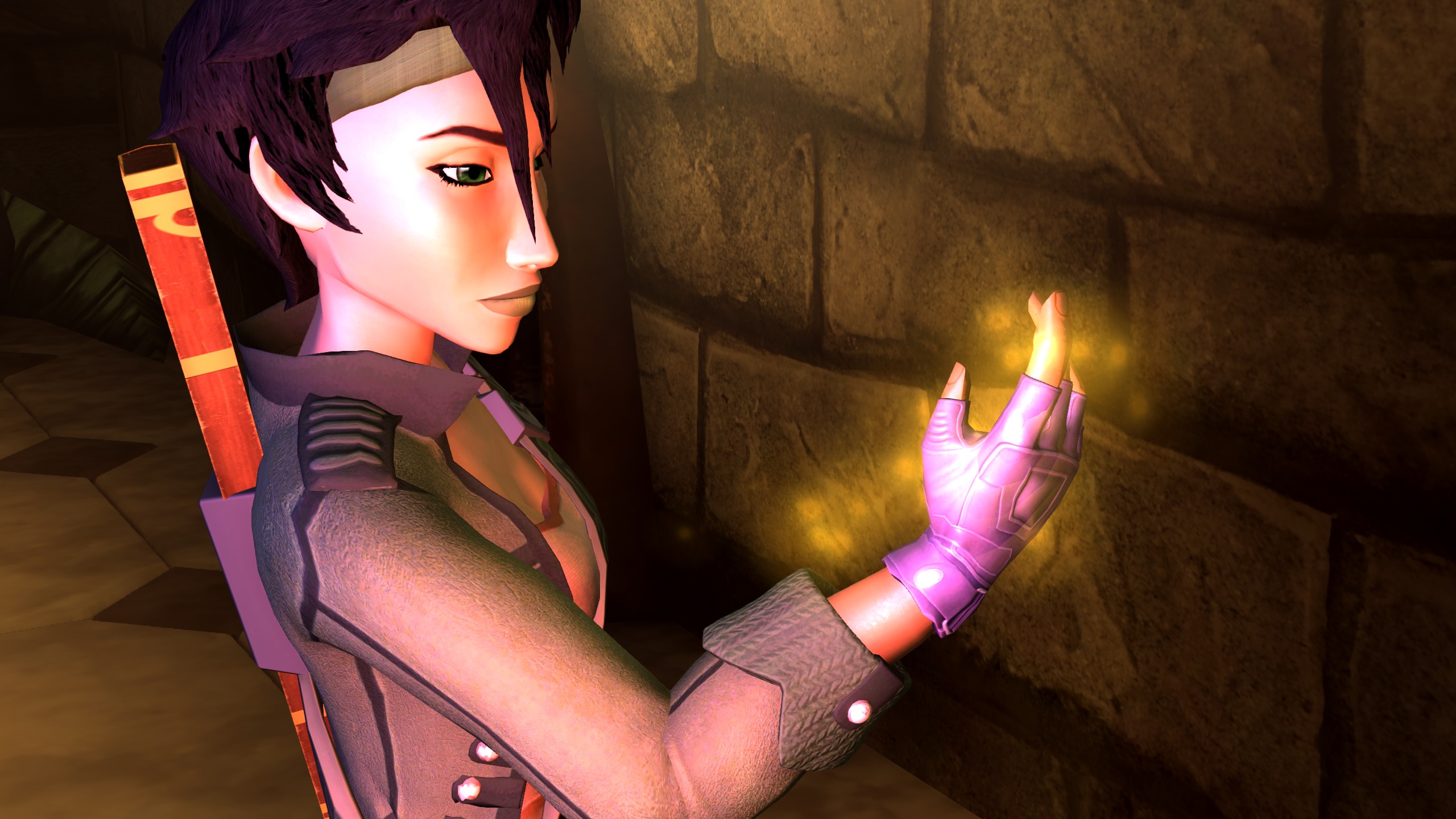
You know that thing that always happens in the 72 hours immediately following a Bethesda release? The inevitable upscaled 8K texture pack that sharpens every rock, tree, and roadway in the land to an almost medical level of detail?
Despite the self-laudatory descriptions, those mods are usually a messy sidegrade at best: Some things look better, others look worse, and the game's aesthetic as a whole becomes messy and muddled as a result.
Well, it's not just for Bethesda games anymore. 21 years later, Beyond Good and Evil has gotten its 8K texture pack.
Jade anniversary
Beyond Good and Evil: 20th Anniversary Edition is a thorough remaster of the original 2003 game from Ubisoft and Virtuos (the studio helping Konami on that Metal Gear Solid 3 remake), featuring new achievements, prettier graphics, gamepad support, and a new bonus quest that promises to tie the game into Beyond Good and Evil 2, which is set to release when the Lamb opens the seventh seal and looses a great silence in heaven. You know, the same time as Silksong. I'm afraid I can't speak to that, though. It only unlocks near the end of the game, and I'm around four or so hours in.
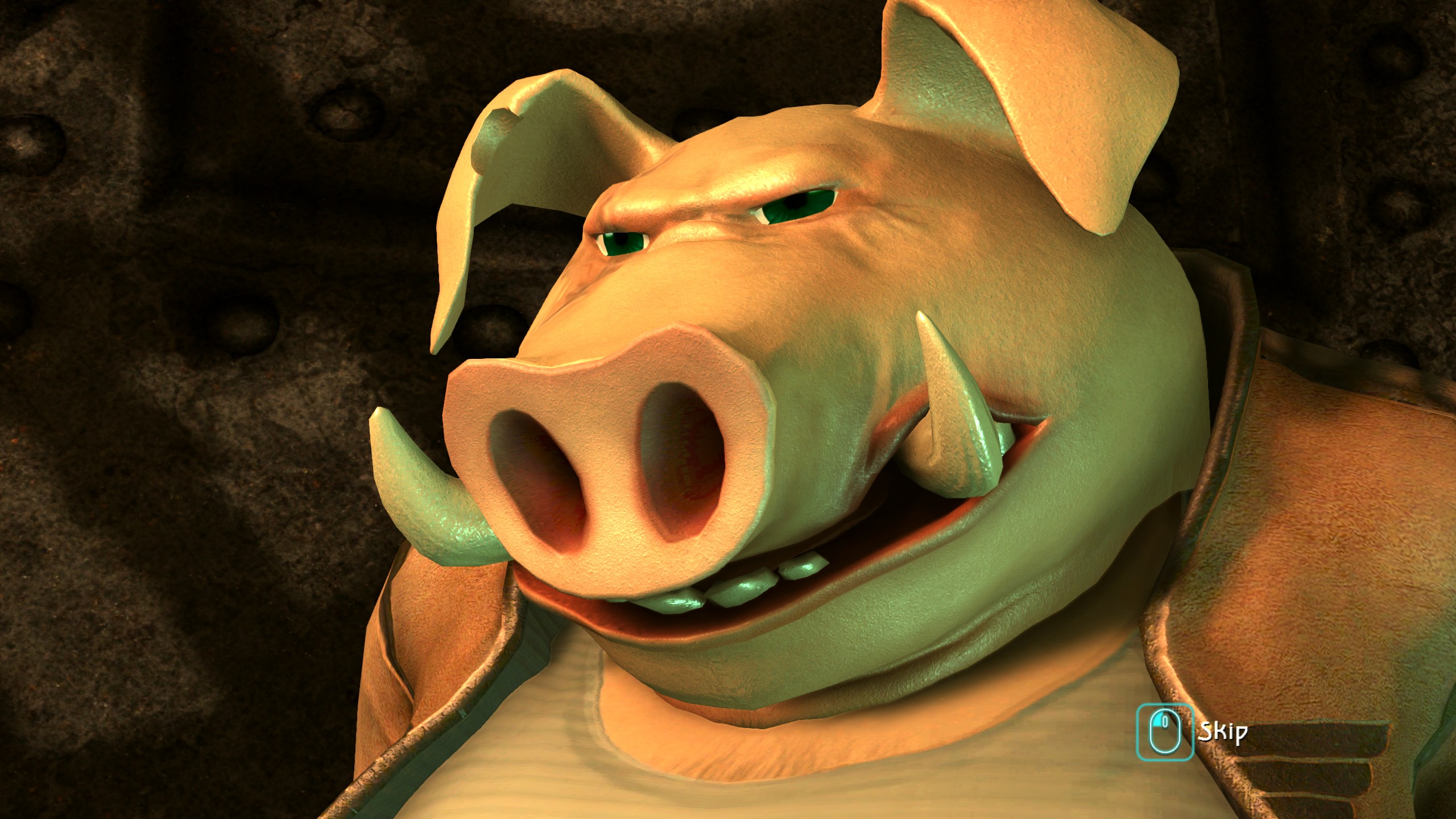
And look, before I start moaning like you all know I'm going to, I'll say this: This is assuredly the best and easiest way to play Beyond Good and Evil 1—a game I love—on PC in 2024. The original is simply a chore to play on modern machines. When I launched it to compare earlier today, it was inexplicably letterboxed, stuttered to the point of unplayability, and refused to recognise my controller despite the PC Gaming Wiki's assurance that it should have support. It's old, in other words: As far away from us as Mario Bros was from it back in 2003.
The 20th Anniversary Edition makes it young again, in most respects at least, giving you a ready-to-go version of the classic you can launch, enjoy, and play with a gamepad in front of your TV in the modern era, utterly unchanged in its moment-to-moment gameplay from the thing you remember from your childhood.
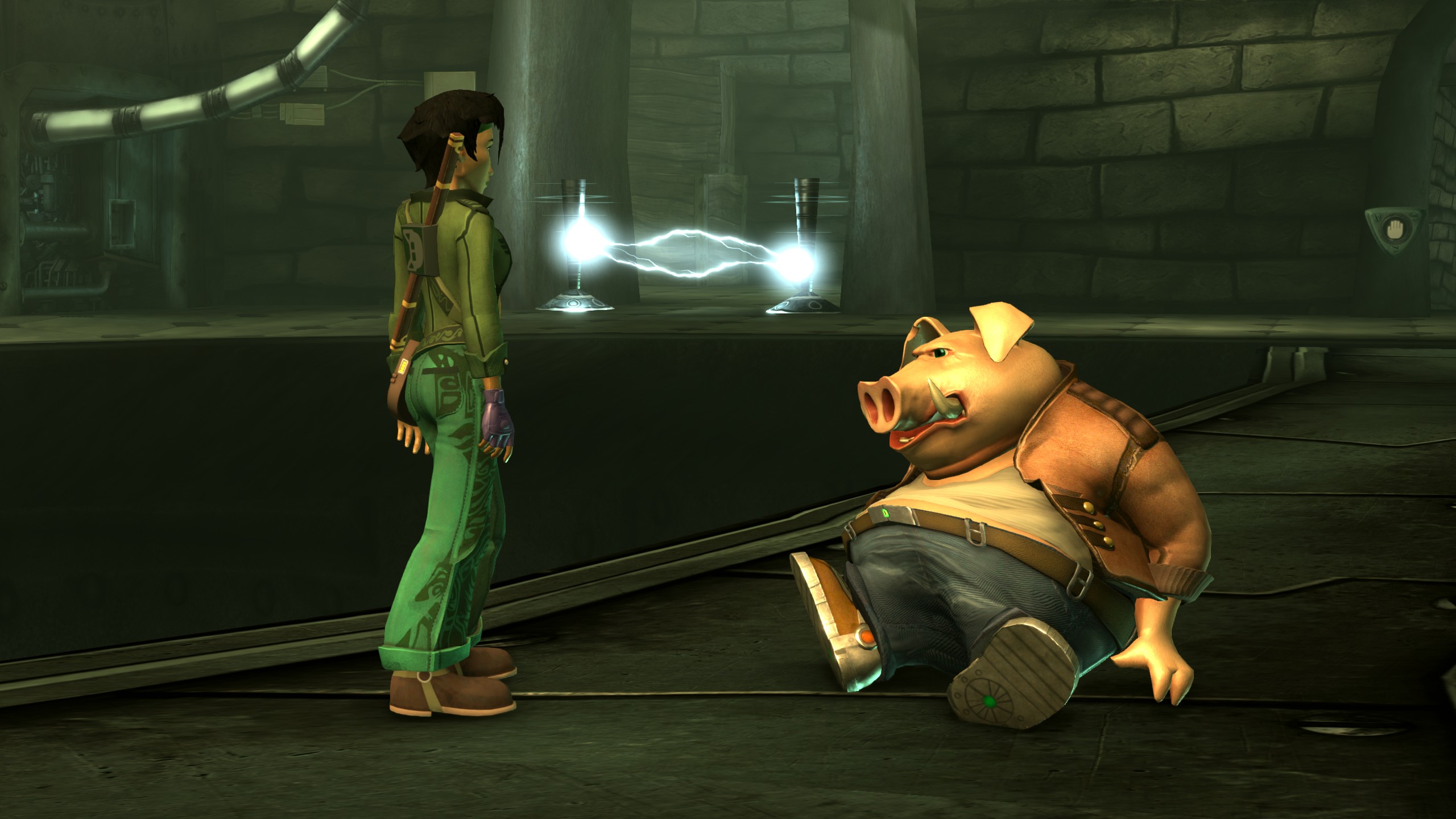
For that alone I'm grateful it exists, but it's not all it could be. First up, it still stutters somehow. Nowhere near as much as the original game and not to a level that makes it even close to unplayable, but in numerous areas during my hours with the game it will inexplicably start to shudder and jerk.
The biggest gaming news, reviews and hardware deals
Keep up to date with the most important stories and the best deals, as picked by the PC Gamer team.
I truly cannot fathom why: There doesn't seem to be anything in common between the areas it starts to stutter—big crowds, particular items or anything of the sort—and the game just isn't cutting-edge enough to make my GPU do real work. It's prettier, yes, but it's Beyond Good and Evil. My RTX 4080-equipped rig that chews right through Cyberpunk 2077 should not be having problems with it. I suspect it's something that will be quickly patched out as more people get their hands on the game, but it's a mystifying misstep in a project that's meant to polish the classic to a mirror-shine.
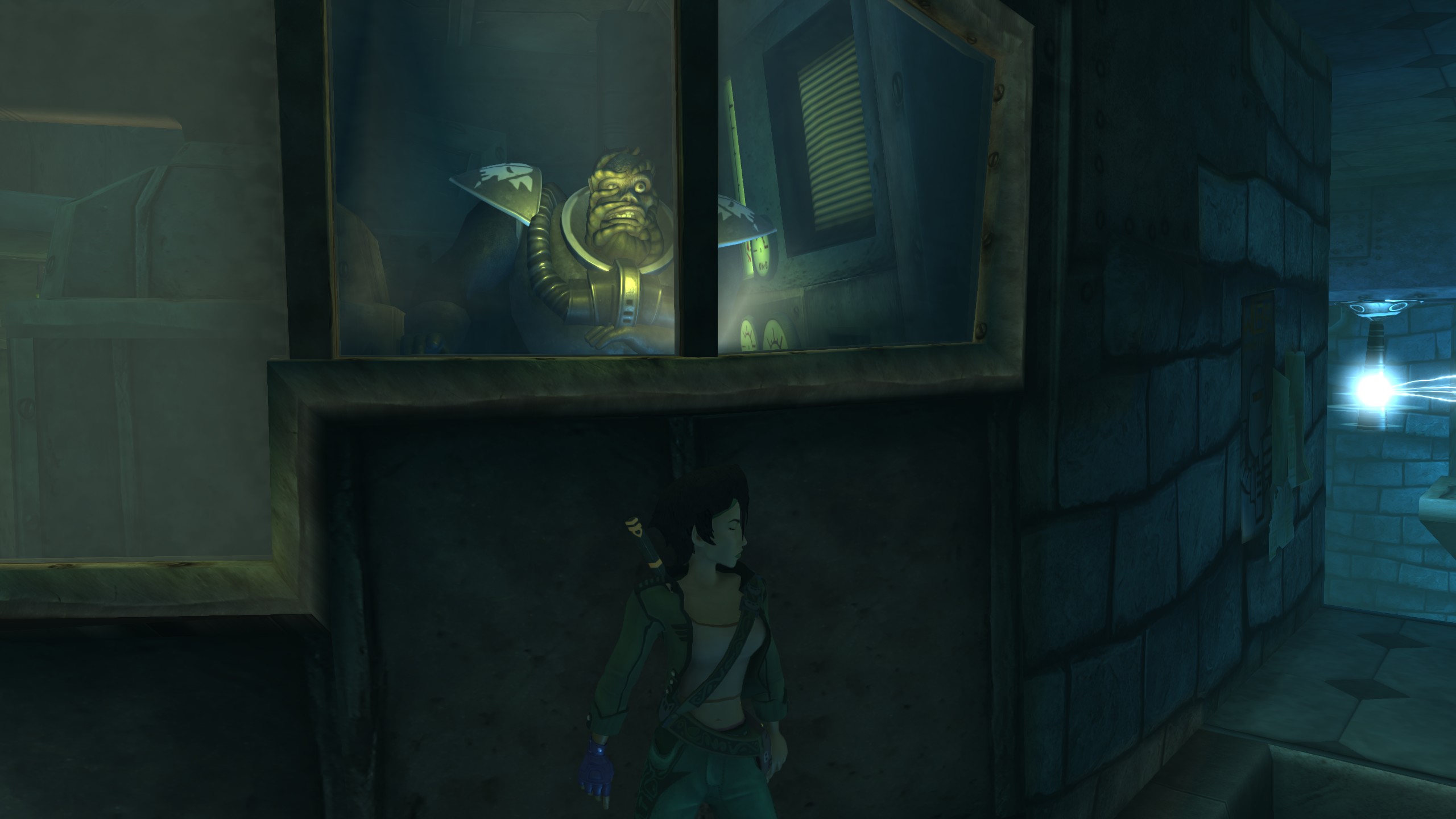
Strand games
But like I indicated up top, it's not that part of the remaster that sticks in my craw. The original Beyond Good and Evil was, above all, a vibe. It was no graphical showcase, but a strong art direction created a world you could slip into like warm bathwater: A kind of comic-booky mishmash of bright colours and inventive characters with strong, identifiable silhouettes. Art direction, in other words, that all blended together to give Hillys a strong, cohesive sense of place, and that made it somewhere you could drift about for ages in your hovercraft, listening to that one twinkly piano track on repeat.
But the 20th anniversary edition has that Bethesda-modder disease: A relentless obsession with detail that ends up making a lot of its distinct elements feel out of place and discordant with one another. Jade herself might be the best example of this. In the original game, she was a bright block of green: A vibrant jacket, bandana and matching lipstick underneath a solid block of ruffled black pixie cut. None of these aspects of her character were a tax on your graphics card—her hair was not TressFX'd—but she stood out as bold and unique.
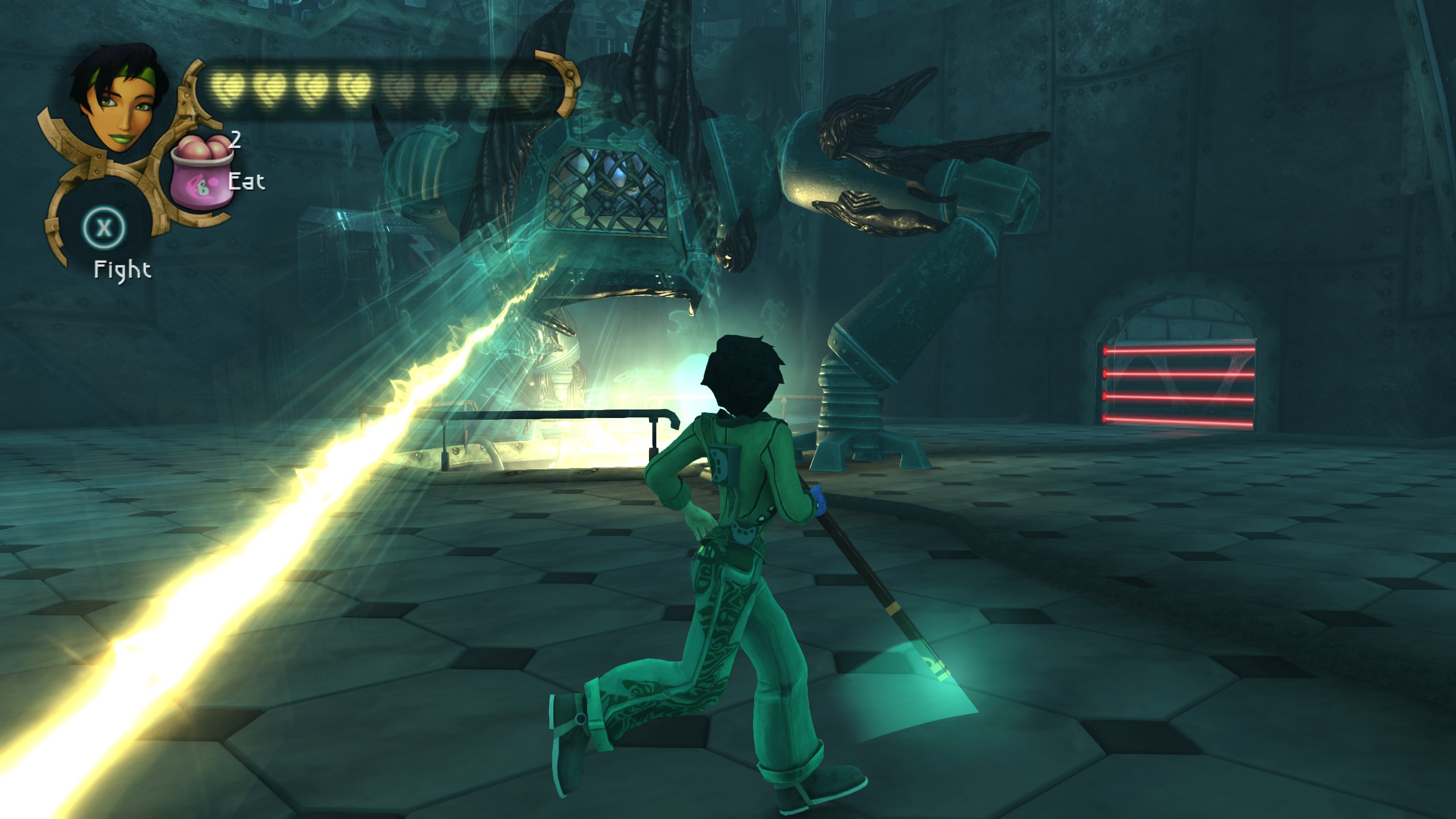
In the 20th anniversary edition, Jade has been inexplicably toned down. Still green, sure, but a kind of tired, matte, muted green that doesn't pop (on an HDR-equipped OLED, no less) anywhere near as much as she did in 2003.
Instead, her jacket and headband are now exhaustively modelled, you can see the weave of the threads that make them if you get your camera in close enough, and find strange divots and details in the texture. Her hair is the same: It's the shape it was in 2003, but rather than a kind of featureless black block its texture now includes actual strands of realistic-looking hair. That weird realistic hair texture also applies to any anthropomorphic animal character with fur, and it looks, well, pretty awful, to be frank.
It's all meant to make the game feel more real, I'm sure, but, it just ends up creating a strange kind of uncanny valley effect, just like the ultra-detailed stones and twigs of umpteen Skyrim texture mods. Beyond Good and Evil never was realistic. That wasn't the artstyle Ubisoft was going for in 2003. Trying to jam hyperrealism into that world 20 years after-the-fact just doesn't work.
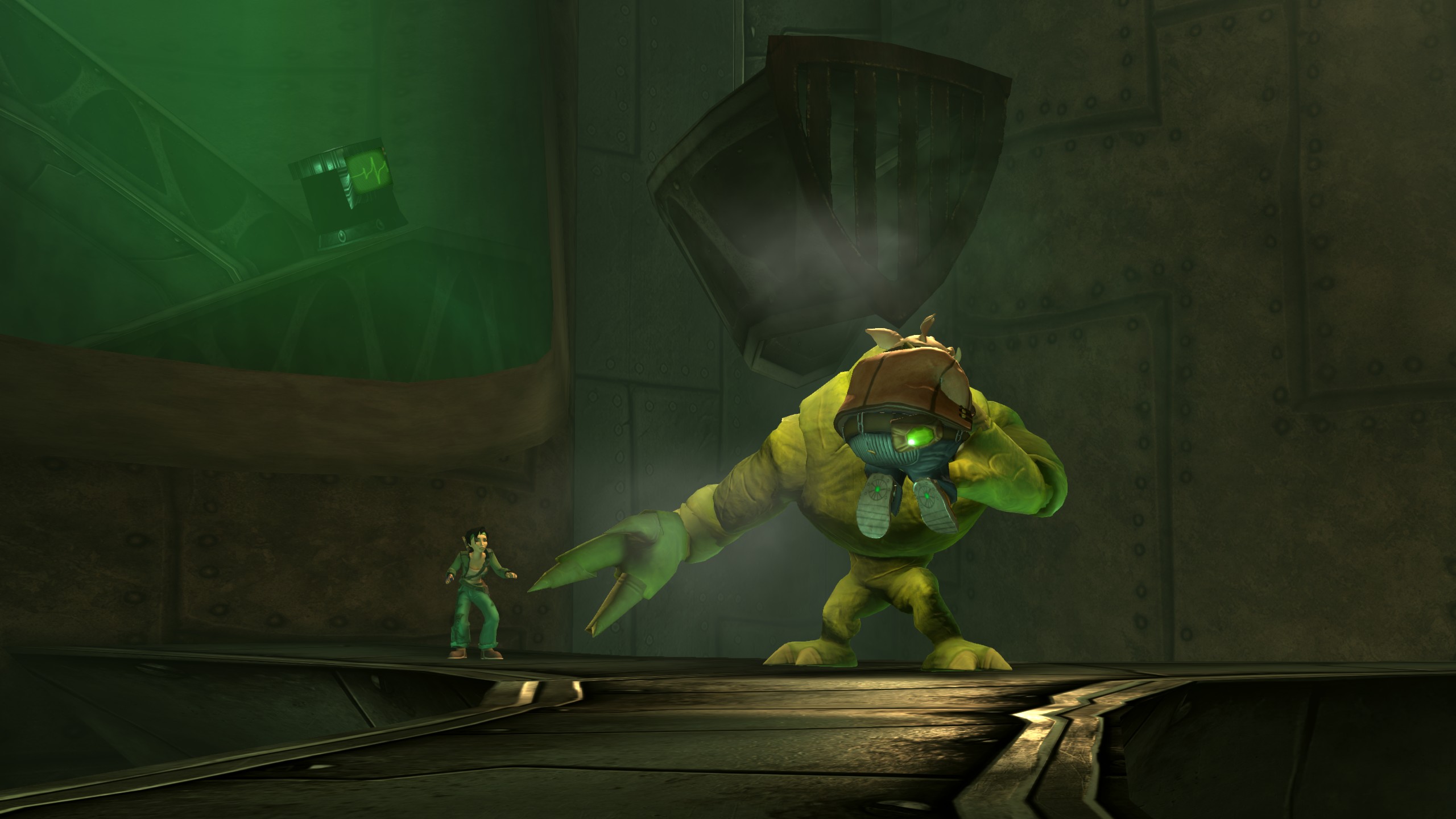
Turning a Pey'j
Not every textural touch-up is terrible. For a lot of the world textures, Ubisoft has actually taken a pretty deft touch, polishing things up in a painterly style that works incredibly well at highlighting what was great about the original game's art direction without creating the "over-textured" effect you can find on a lot of the models. Heck, some characters look good too. The villainous Alpha Sections look incredibly sleek and sinister in their polished black armour, which seems to have escaped Ubi and Virtuos' compulsion to fill every metal surface with a hundred pockmarks and specks of rust.
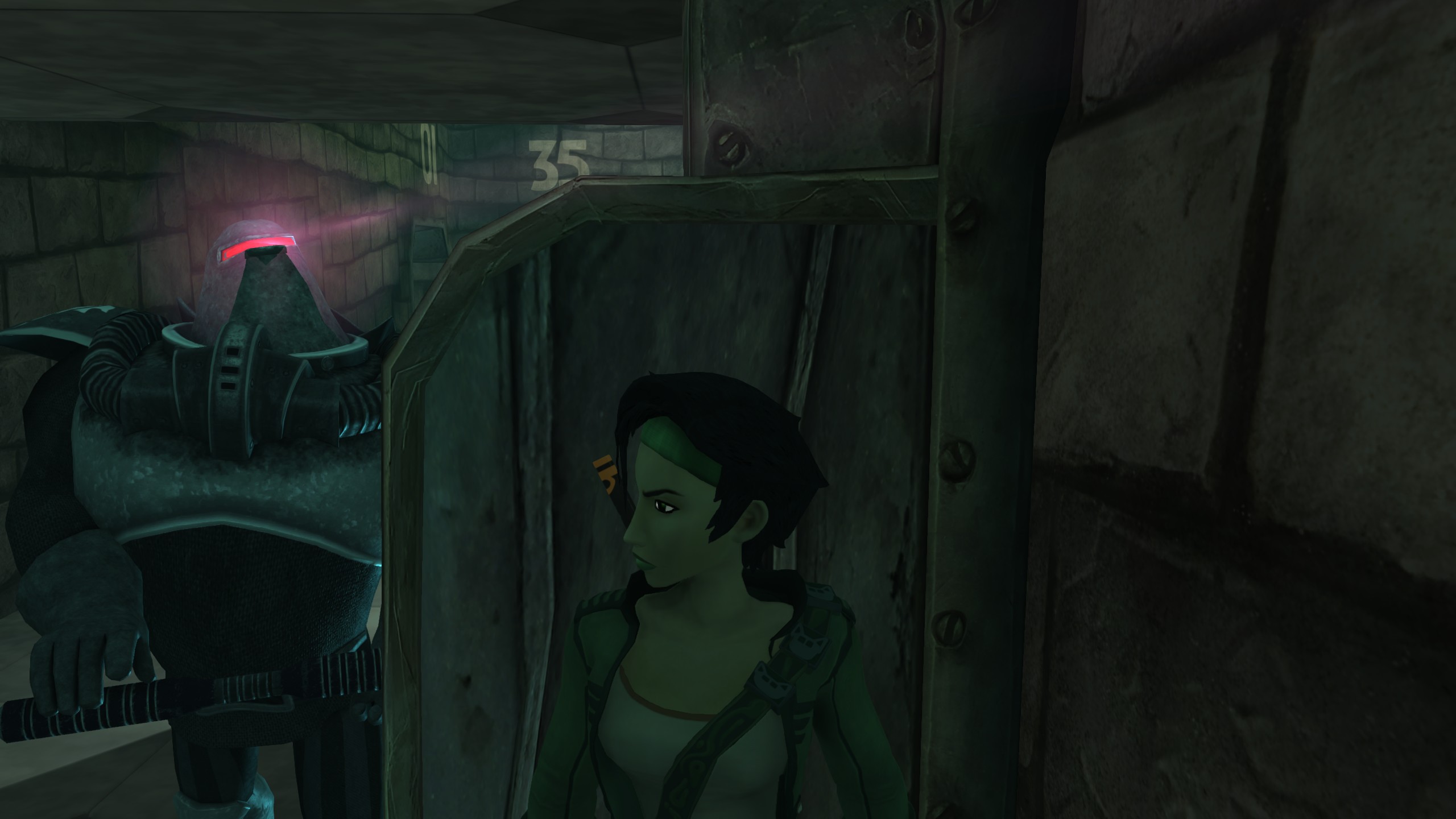
But ultimately, I think if the original Beyond Good and Evil were still easy to play, I'd recommend that over the 20th Anniversary Edition. The remaster whiffs the original's iconic art style so hard in several key areas—across Jade and her companions especially—that it can be pretty difficult to look at as a fan of the original. And if it's your first time in Hillys? You might be left wondering what it is about this world that's kept people charmed across the last 16 years of sequel development.

One of Josh's first memories is of playing Quake 2 on the family computer when he was much too young to be doing that, and he's been irreparably game-brained ever since. His writing has been featured in Vice, Fanbyte, and the Financial Times. He'll play pretty much anything, and has written far too much on everything from visual novels to Assassin's Creed. His most profound loves are for CRPGs, immersive sims, and any game whose ambition outstrips its budget. He thinks you're all far too mean about Deus Ex: Invisible War.

